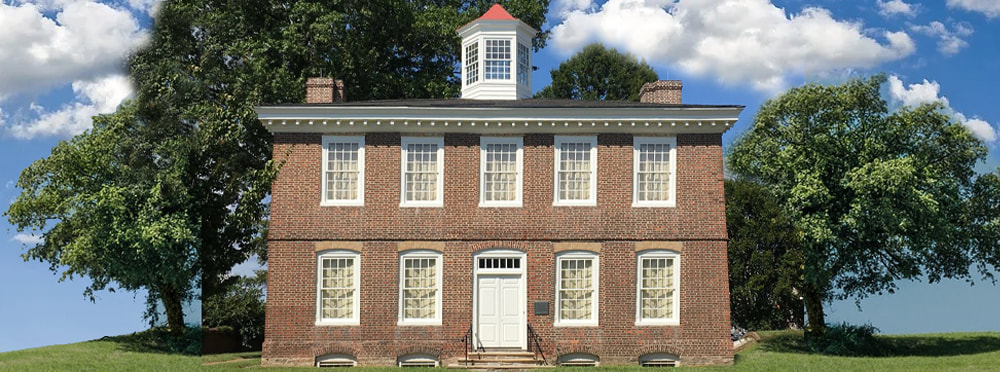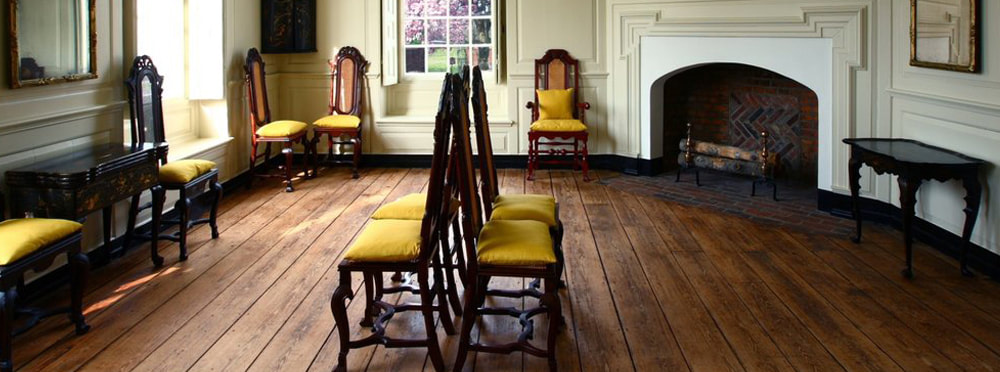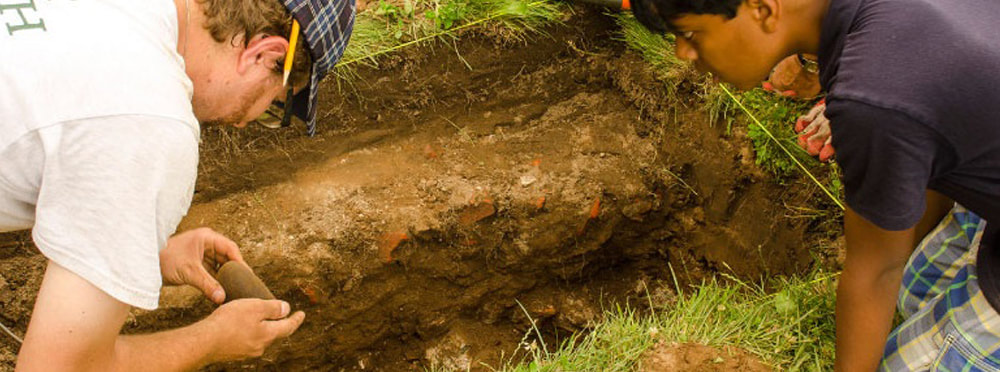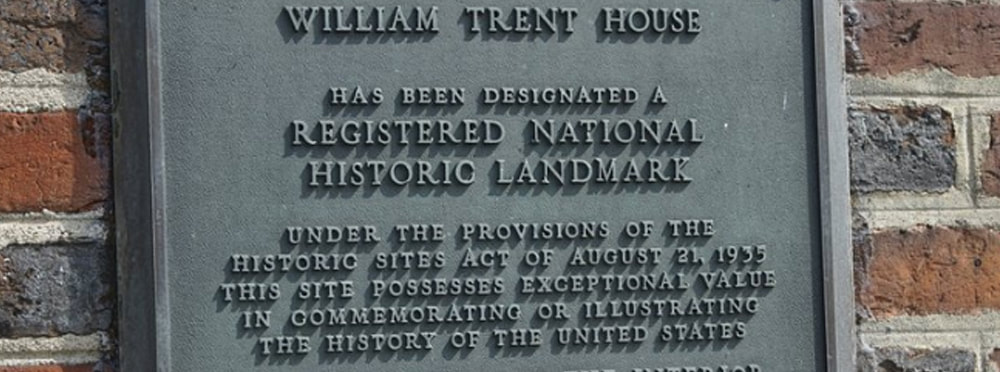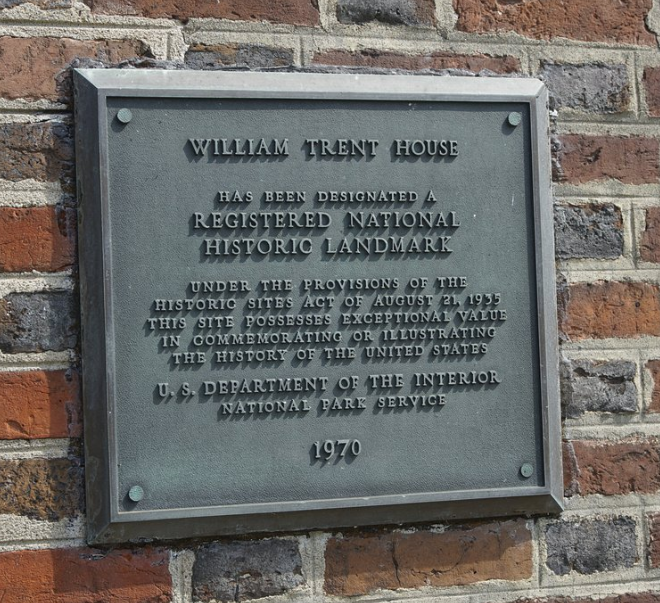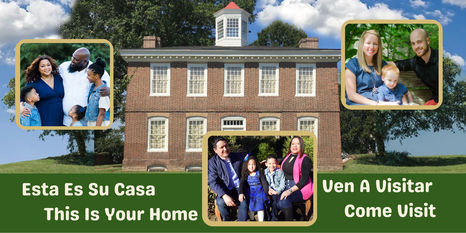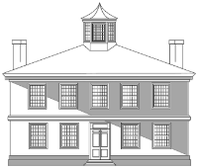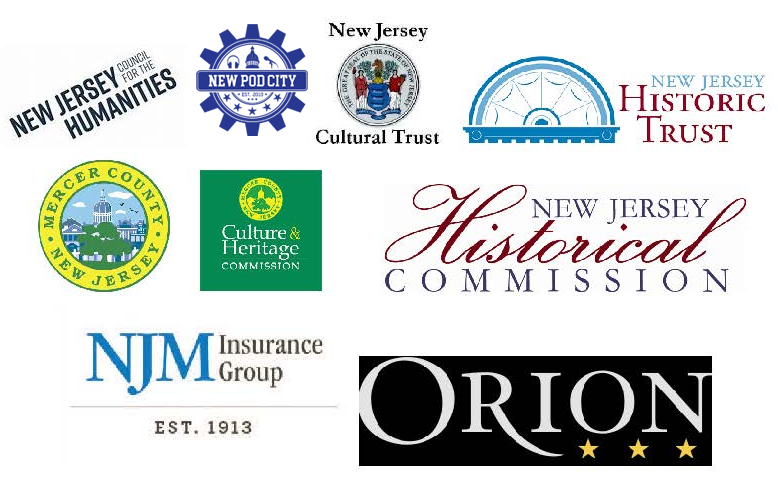The land knows, the house sees, we tell the stories.
Learn more about our work and how you can contribute.
The Museum will be closed thru July
for installation of a new heating and air conditioning system,
funded by the NJ Historic Trust and the City of Trenton.
However, the grounds and Visitor Center are open
Wednesdays and Thursdays (11 am to 4:30 pm) &
Fridays, Saturdays, and Sundays (1 pm to 4:30 pm).
Welcome to the Trent House
The Trent House Museum is open for visitors Wednesdays through Sundays from 1:00 to 4:30 pm, except on City holidays.
Stay connected with us by signing up for emails.
Stay connected with us by signing up for emails.
|
The Trent House Museum is a co-founder of the Sankofa Collaborative, formed in 2017 to build the capacity of individuals, groups, and organizations to learn about, present, and discuss the complex and difficult issues in the history and current experiences of African American citizens of New Jersey.
Learn more about the Collaborative and explore its resources at https://sankofacollaborative.org.
The Collaborative is sponsored by the New Jersey Council for the Humanities and has been supported with grants from the New Jersey Historical Commission, Robert Wood Johnson Foundation, and individual and corporate donors. |
William Trent, with his family and eleven enslaved individuals of African descent, lived on this 1,000-plus acre plantation at the Falls of the Delaware in the colony of West Jersey, which is now the city of Trenton, New Jersey. The land on which the Trent House and the city of Trenton stands is part of the traditional territory of the Lenni-Lenape, called "Lenapehoking." During the colonial era and early federal period, many were removed west and north, but some also remain in continuing historical tribal communities of the region. We acknowledge the Lenni-Lenape as the original people of this land and their continuing relationship with their territory.
Born in Scotland, William Trent immigrated to the American colonies in the early 1690's and embarked upon a successful career as a Philadelphia merchant. He traded mainly with Great Britain and with the other American colonies and participated in the slave trade, buying and selling enslaved people in the West Indies and in the North American colonies. In 1714, Trent purchased a large tract of land in central New Jersey from the initial English colonist, Mahlon Stacy, and built a grand country residence in 1719. In 1720 Trent laid out a settlement surrounding his residence and in 1721 Trent, his family, and the enslaved members of his household moved to the home from Philadelphia. Trent continued his active civic life in New Jersey, serving in the Assembly and as the Chief Justice. The city of Trenton takes its name from “Trent’s Town,” the area around Trent’s home. The Trent House's newest initiative seeks to build the capacity
to reach and engage Spanish-speaking residents of Trenton and surrounding communities. The initiative's slogan "Esta Es Su Casa - This Is Your Home" reflects the Museum's mission to share the history of the house, property, and people with all our communities. We are grateful for the support of the Bunbury Fund of the Princeton Area Community Foundation. |

